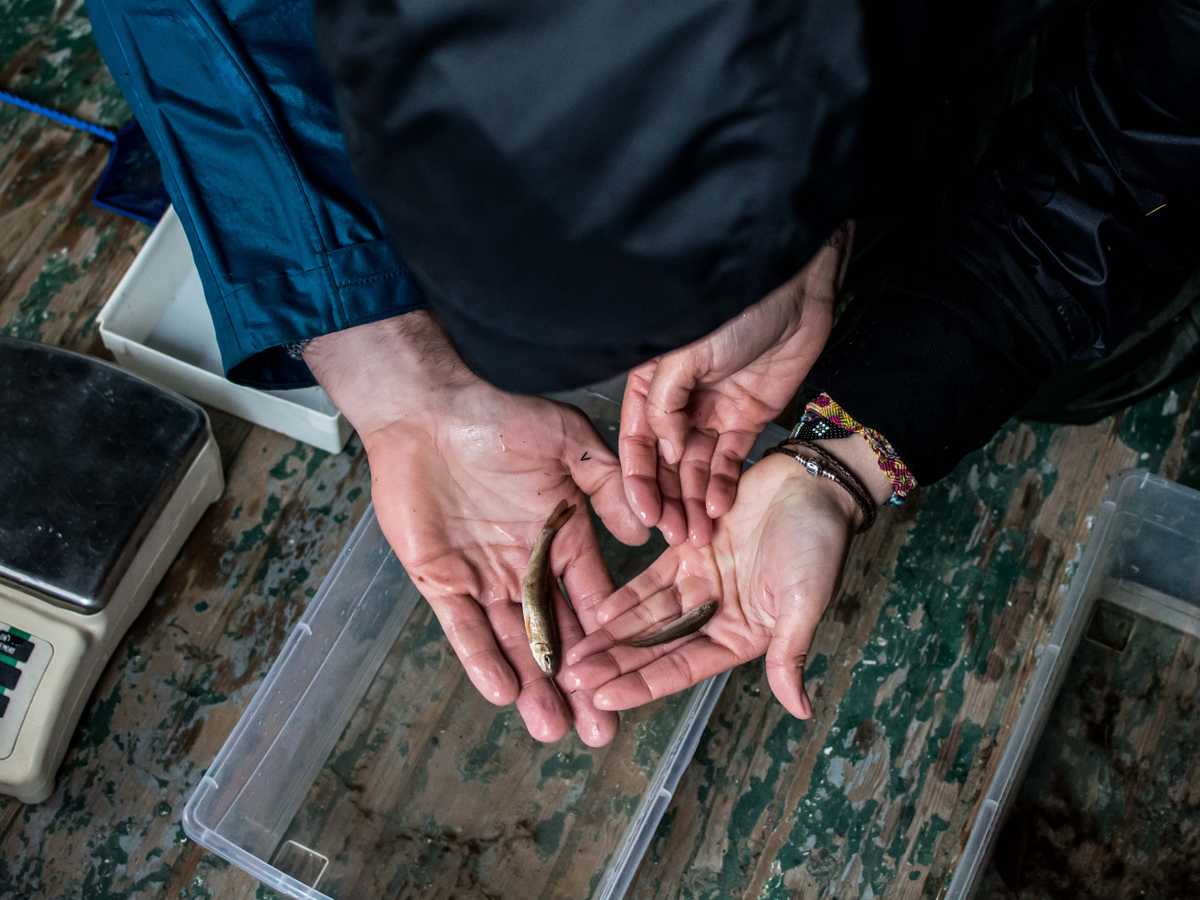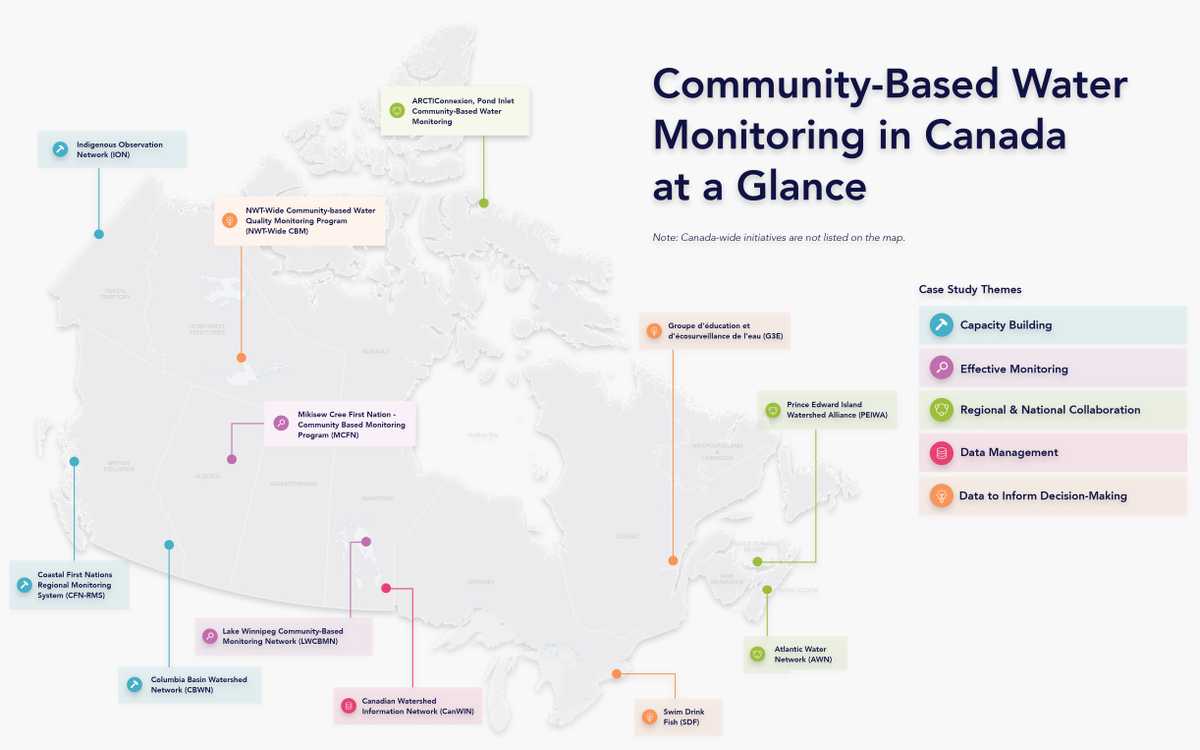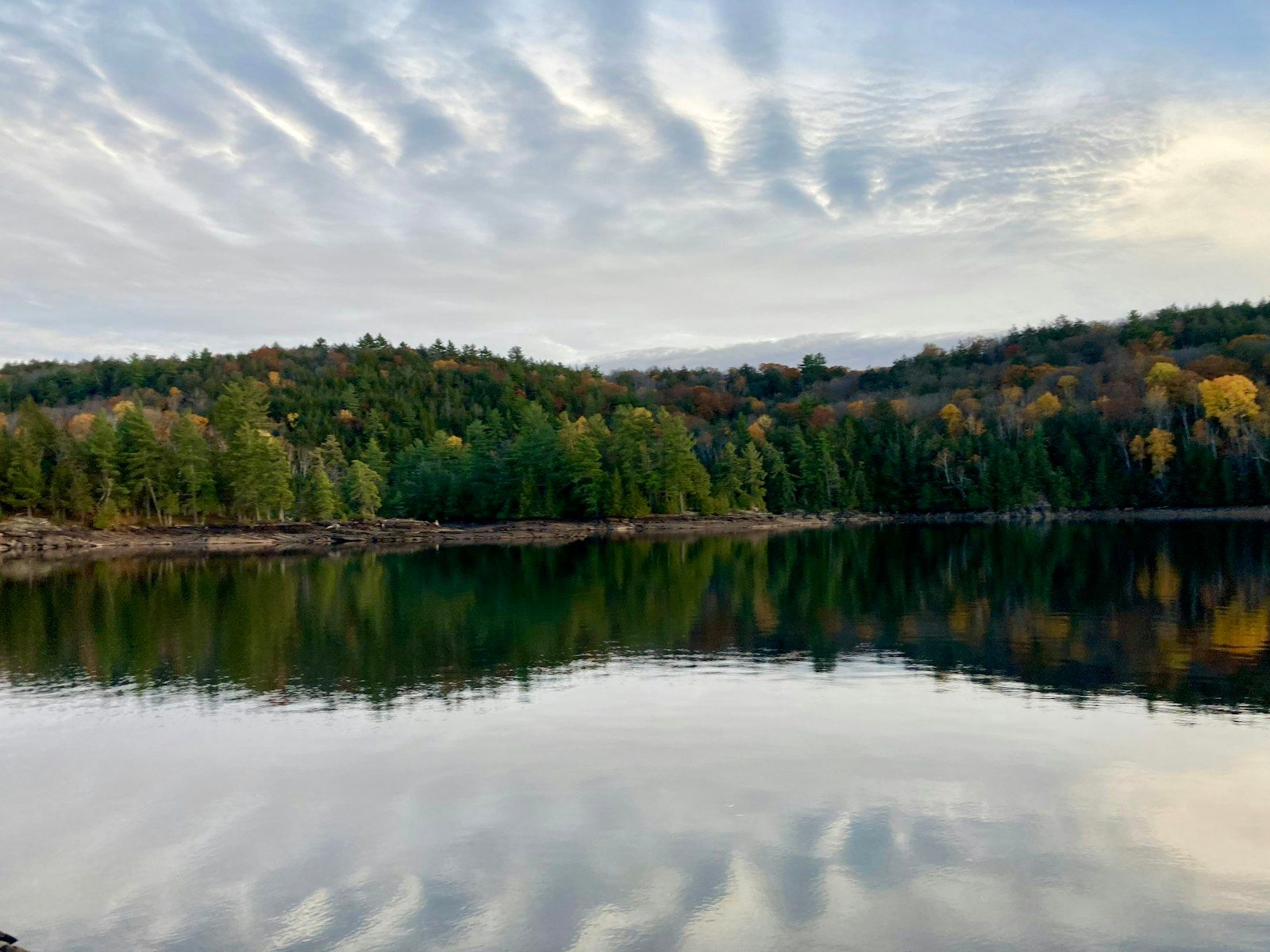
Celebrating Citizen Science Day 2019
April 12, 2019
Happy Citizen Science Day! This April 13, we are celebrating the countless community-based monitoring groups and citizen scientists contributing their knowledge and energy to understanding the health of watersheds all across the country.
To celebrate Citizen Science Day, now in its third year, we are pleased to share a collection of featured case studies showcasing the breadth and diversity of CBWM initiatives across Canada from East to West and the high arctic – including water stewardship organizations, Indigenous Guardians, networks of citizen scientists and many more.

Selected case studies span Canada from coast to coast and the high arctic.
These case studies complement a year-long initiative led by The Gordon Foundation, Living Lakes Canada and WWF-Canada with the aim of identifying how the federal government can meaningfully and effectively engage with and support CBWM in Canada. The outcomes of the initiative include a wide range of recommendations on capacity building, effective monitoring, regional and national collaboration, data management and informing decision-making. You can read more about this project here.

The results are in! DataStream's 2023 external evaluation
We asked for your feedback, and you delivered! DataStream is pleased to share the results of our 2023 external evaluation.

Job Posting: Executive Director
The Executive Director (ED) will play a pivotal role in leading DataStream at an exciting time of growth.

Join DataStream's Pacific Data Drive
Do you collect water quality data in British Columbia or the Yukon? If YES, we want to work with you!